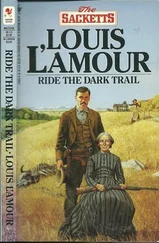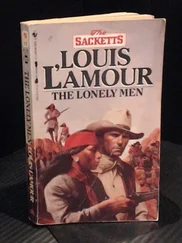There was one thing Walker did not know and which Stoeckl had no intention of telling him. There was every prospect that Zinnovy himself would be appointed revisor at Sitka.
"It is, as you suggest, a possibility that another shipment of convicts might be sent to Sitka. ... How do the votes stand, Mr. Walker, for the appropriation?" They talked far into the night, weighing the pros and cons and Stoeckl nursed his injured leg and cursed under his breath.
It was bad luck that Zinnovy had gone to Siberia without putting in at Sitka, and the prisoners had been landed there and turned over to the police. Probably not even he knew what had become of LaBarge by now. It was several days before he saw Walker again. They met briefly, over a glass of sherry. "By the way"--Stoeckl was on his feet ready to go--"I understand a shipment of twenty prisoners will leave Okhotsk on the last of the month." "I shall hope for further news. Are any prisoners I know involved?"
"At least one," Stoeckl replied, "that I am sure of." They parted and the Baron walked away. There was no reason why he should feel guilty. It was too bad for LaBarge, and the Baron felt real regret for Robert Walker. A good man, this Walker, a genius at managing things like this treaty. Seward might be the key figure, but it was Walker who lined up the vote, did the lobbying, the entertaining, and the leg work to arrange the purchase. Walker must be content with that. For the rest of it, there was no hope. Prisoner Jean LaBarge was going out of the Siberian frying pan into the Sitka fire.
Chapter 35
From the window of her room in Baranof Castle, Helena looked out over the city and harbor where sunlight lay bright upon the water, and gleamed from the serene loveliness of Mount Edgecumbe. The Castle was no longer the gloomy place it had been. In the capable hands of Prince Maksoutof and his wife it had become warm, comfortable, even gay.
The same eighty cannon looked grimly over the city from the parapet below. But there was more shipping in the bay, and several of them were American ships. She had been a fool to come, yet if Rob Walker's hint in his letter to her had been founded upon fact, Jean LaBarge might soon be arriving here. If she could not free him she could at least, through Prince Maksoutof, relieve his imprisonment a little.
So few words had actually passed between them, yet she knew how he had felt, and she also knew, only too well, her own feelings. But what would prison have done to him? She had seen men who returned from Siberia, some of them scarcely human after the hard labor and punishments. Yet there was something about Jean that seemed indestructible.
There had been so little. The warmth in his eyes, the pressure of his hand, their bodies close together in the bouncing, jouncing tarantas. She had loved a man for the first time, and she had lost him. Her husband had always been more like a kind father, tender, thoughtful, and considerate, and she had loved him for this. But it was nothing like her feeling for the tall, dark, dangerous-looking man with the scar whom she had loved with a love that bridged the bitter months and made them seem an age. If this was being a fool, then she was a fool, and she had come across Siberia again, and across the ocean, merely on the hope that he would be here, and that he would still care.
Prince Maksoutof was questioning himself Kas to why she was here. Both the Prince and Princess had tried to find some clue from her conversation or her guarded replies to questions.
The Russian American Company still operated in Sitka although its charter had not been renewed. Something was impending, some change of which she could find out nothing. So far as she had been able to discover, the plan to sell Alaska had failed at the last minute. There were rumors of negotiations and rumors of the collapse of negotiations.
From the beginning of Jean's disappearance she had corresponded with Robert Walker. In his last letter he had hinted that Jean, as a convict, might be transferred to Sitka. She knew from here an escape might be arranged and she was perfectly prepared to do her part in making the arrangements. A schooner that had come in only last night had brought news that a Russian ship was due in today, and Murzin was down in town even now making friends. If anyone could help Jean escape it was the former thief, that wiry, narrow-faced man who had never left her service since that meeting on the trip across Siberia with Jean.
At breakfast she had been gay, chatting cheerfully of St. Petersburg, the court, that handsome Count Novikoff, and the last ball at the Peterhof. She had told them of San Francisco and its warm green hills, sometimes misted with rain. She had talked of everything but the ship that hour after hour, minute after minute, was drawing nearer to Sitka. Even now it might be coming up the bay through those beautiful islands that resembled so much the islands of the Adriatic. A warmer sea, but never a more lovely one than this. She went down the steps slowly, not wishing to reveal her excitement. If Jean was aboard she must help him escape, and that before the revisor came on his inspection trip. Maksoutof had told her the man was coming, but nobody knew when.
"Helena," Princess Maksoutof suggested, "why don't we go to the teahouse and watch the people land from the ship? They will come up the street and if we get in the right position we can see them leave the dock." She got up, almost too quickly. "I'd like a walk," she said. "I'd like it very much."
Although from the teahouse they could see little, Helena forced herself to wait quietly, knowing whatever news there was would first be known here, long before it was heard on the Hill.
The waitress was excited. "They are bringing convicts ashore! They are to work here!"
"Irina"--Helena could wait no longer--"let's go down and watch them come in!" They came, preceded by soldiers, in a column of twos, the gray-clad prisoners marching in slow, even steps swaying as though to a soundless rhythm. The first two were a red-bearded giant and a slender man with a twisted face. They blinked their eyes against the light after standing for some time in the shadowed warehouse. There was one man, tall, whose head was bowed. It could be Jean.
"Helena!" Irina caught her arm. "Look! Isn't he magnificent!" He stood straight and tall, and he wore his chains in this town where he was remembered as another man might have worn a badge of honor. His face was shaggy with beard and his hair was long ... he was much, much thinner! But he stood tall and he walked tall. He carried his head up and his eyes were clear. How could she ever have imagined they could break or tame him? He was one of the untamed, and so he would ever be.
He walked beside a shorter man who was also bearded, but Helena had eyes only for Jean. She moved to the edge of the walk, hoping he would see her, hoping he would know she was here to help.
"Jean!" She must have whispered it, for Irina turned suddenly to look at her.
"Do you know him?" Irina's eyes were bright with excitement and curosity.
"Yes ... yes, I know him. I know him well. I love him." "You needn't have told me that. I can see." Irina looked at Jean again. "Yes, without so much beard, and if his hair was cut--" She glanced around at Helena. "Is that why you came? Did you know about this?"
"I came on hope," she said.
Jean hunched his shoulders inside the thin coat. His eyes swung to the crowd, and suddenly he saw Helena.
An instant, a step only, he paused. Their eyes met across the heads of the people and suddenly there was a great smile on his face and Helena started forward. Irina caught her arm. "Not No, Helenal You mustn't! I'll arrange--" "Whatever you arrange"--the voice was cool, amused--"do it quickly. He goes on trial tomorrow."
Baron Paul Zinnovy was heavier, his thick neck had grown still thicker. There was in his eyes more cynicism and cruelty than Helena remembered. "What are you doing here?" she demanded. He had been ordered back to Siberia, to Yakutsk. She remembered that. It could have been only a few months after Jean was captured.
Читать дальше












